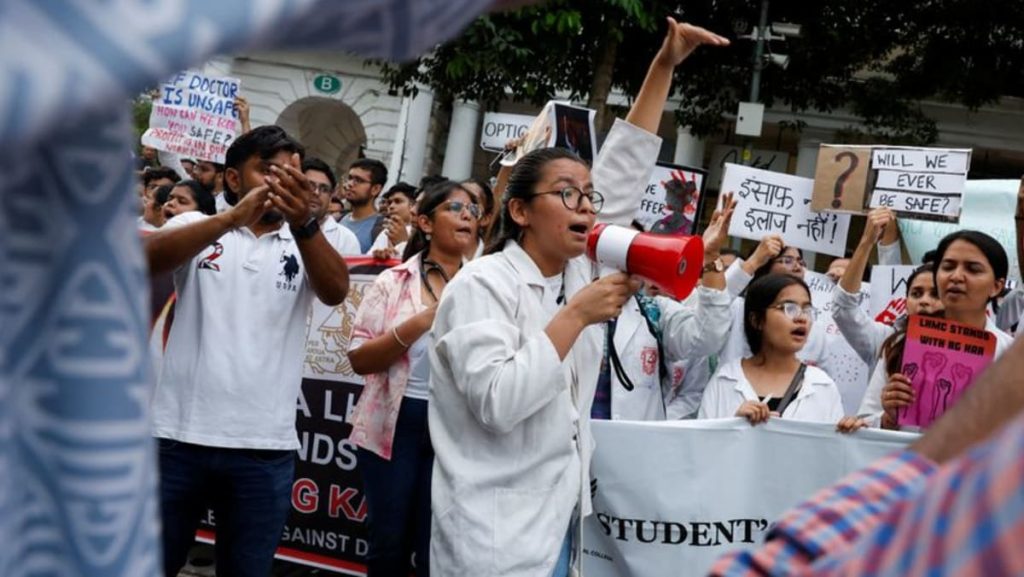Thousands of junior doctors in India have been protesting following the rape and murder of a fellow medic in Kolkata. The incident occurred on Aug 9, sparking nationwide demonstrations and a refusal to see non-emergency patients. The victim, a 31-year-old trainee medic, was allegedly raped and murdered at the hospital where she was working. A police volunteer has been arrested and charged with the crime, but the doctors continue to demand a safer workplace and a swift criminal investigation.
The protests have disrupted hospital services across the country as doctors stand in solidarity with their fallen colleague. The situation highlights the ongoing issue of sexual violence against women in India, despite the implementation of tougher laws after the 2012 gang-rape and murder of a student in New Delhi. Women activists have emphasized the need for greater protection and justice for victims of such heinous crimes, calling for stricter measures to prevent such incidents from reoccurring.
The government has urged the protesting doctors to return to their duties while promising to set up a committee to address their concerns and suggest measures for improving protection for healthcare professionals. However, the junior doctors remain steadfast in their demands, stating that they will continue their indefinite cease-work and sit-in until their grievances are addressed. Dr. Aniket Mahata, a spokesperson for the protesting doctors at R.G. Kar Medical College and Hospital, has affirmed their commitment to the cause and determination to see tangible changes in their working conditions.
As the protests continue, the healthcare sector in India faces challenges in providing essential services to patients in need of medical attention. The disruption caused by the protests has raised concerns about the potential impact on the health and well-being of the general population. The government must work swiftly to resolve the situation and ensure that healthcare services are restored without compromising the safety and security of medical professionals, who play a vital role in saving lives and caring for the sick and injured.
The widespread support for the protesting doctors indicates a collective desire for justice, accountability, and reform within the healthcare system. The incident in Kolkata has galvanized the medical community and the public at large to demand action against perpetrators of violence and to push for systemic changes that prioritize the safety and well-being of healthcare workers. The solidarity displayed by doctors across the country underscores the urgent need for concrete measures to address the root causes of violence against women and to create a work environment that is safe and conducive to healing and caregiving.
In conclusion, the ongoing protests by junior doctors in India following the rape and murder of a fellow medic in Kolkata have shed light on the urgent need for improved safety measures and justice for victims of violence. The government’s response to the protests will be crucial in determining the outcome of the situation and in addressing the broader issues of gender-based violence and workplace safety. The resilience and determination of the protesting doctors serve as a testament to their commitment to upholding their rights and demanding accountability from those in power. Only through meaningful dialogue, concrete actions, and a commitment to change can the healthcare sector in India move towards a future where all healthcare workers can fulfill their duties without fear of harm or injustice.


